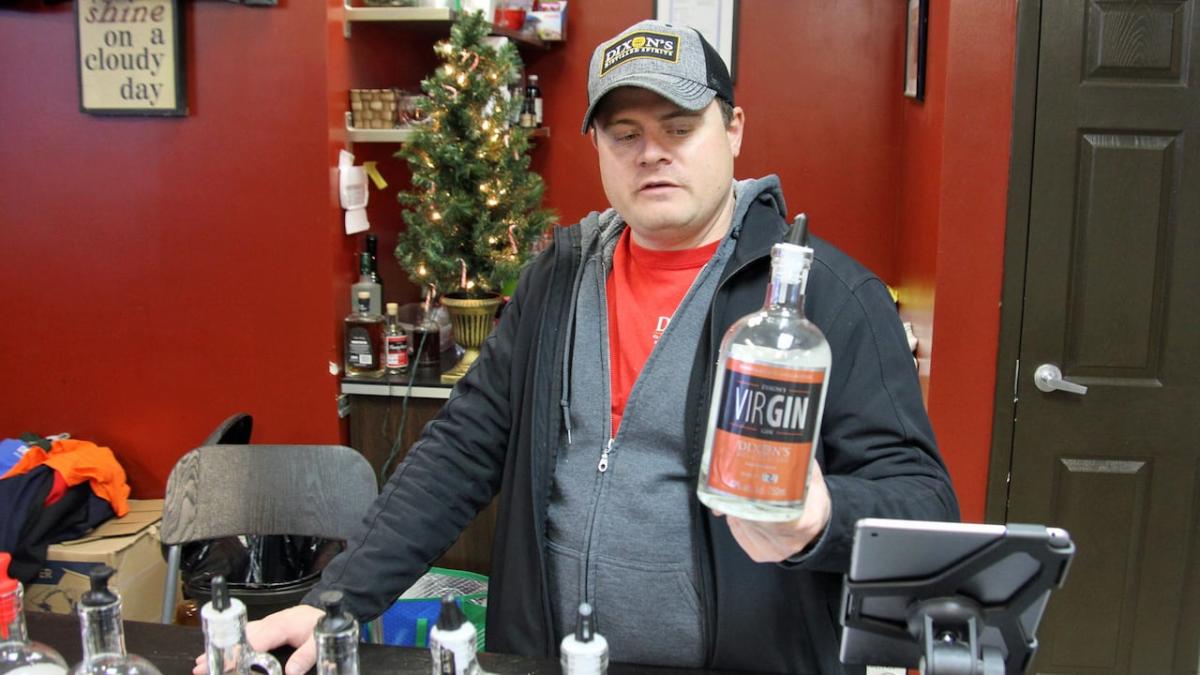Local distilleries and breweries are preparing for the impact of the strike

Some distillery owners in Waterloo Region are concerned about the potential impact of the LCBO strike on their business.
Distilleries are only allowed to sell their hard alcoholic beverages such as vodka, gin and whiskey in their retail store, in bulk to a local restaurant or through the LCBO. However, breweries or wineries that sell cider, wine and beer have the option to also sell their products in approved grocery stores and wholesale markets.
Now some distillery owners are concerned after more than 9,000 liquor store employees in Ontario declared a strike after collective bargaining between their union and the LCBO failed Thursday night.
JD Dixon, president of Dixon’s Distilled Spirits, says customers lined up outside his store the following Friday morning.
“Our store is fuller, which is nice to see. But now we’re losing all the sales in the LCBO stores. So when we sold our gin in Ottawa or Windsor or in Muskoka (through the LCBO), we’re not getting those sales anymore.”
He says if the strike lasts 14 days, his store could lose $30,000 to $40,000 in sales. But Dixon hopes an increase in sales at his retail business will help make up for it.
“In fact, we are going to bottle more whiskey because our stock is currently sold out,” he said after the line outside his store on Friday morning.


I try to stay optimistic
Cooper Sleeman, director of sales and marketing at Spring Mill Distillery in Guelph, says they’re trying to stay optimistic and hope the LCBO strike will get more people to try local brands.
“We have employees who will be staying in the store a little longer. We’ll have a little longer hours,” he said. “Depending on how long that takes, we might even open earlier.”
According to Sleeman, it is difficult to say to what extent the strike could lead to a reduction in profits.
“There are still bars and restaurants that will be open and that we can deliver to. We just launched our e-commerce store online. We only launched that about three months ago. Maybe there will be more traffic that way as well,” he said.
Michael Weber, owner of Neustadt Springs Brewery, hopes the LCBO strike will boost beer sales.
“We really rely on a lot of people coming to us,” he said, adding that they only sell some of their beers through the LCBO – but there is a much larger selection in their retail store.
“We’re in a growth phase that’s really exciting for us. We’re hoping to get a lot more online sales. We’re really trying to push that. We have our entire line of beers available online and we ship anywhere in Ontario.”
Jordan Dolson owns Legacy Greens, a grocery store in downtown Kitchener that sells alcohol.
She says she ordered more supplies when she heard about the LCBO strike.
“I hope people are willing to experiment and try something local and new. We sell a variety of different local products from the area,” she said.
“I hope we meet some new customers,” Dolson said.



